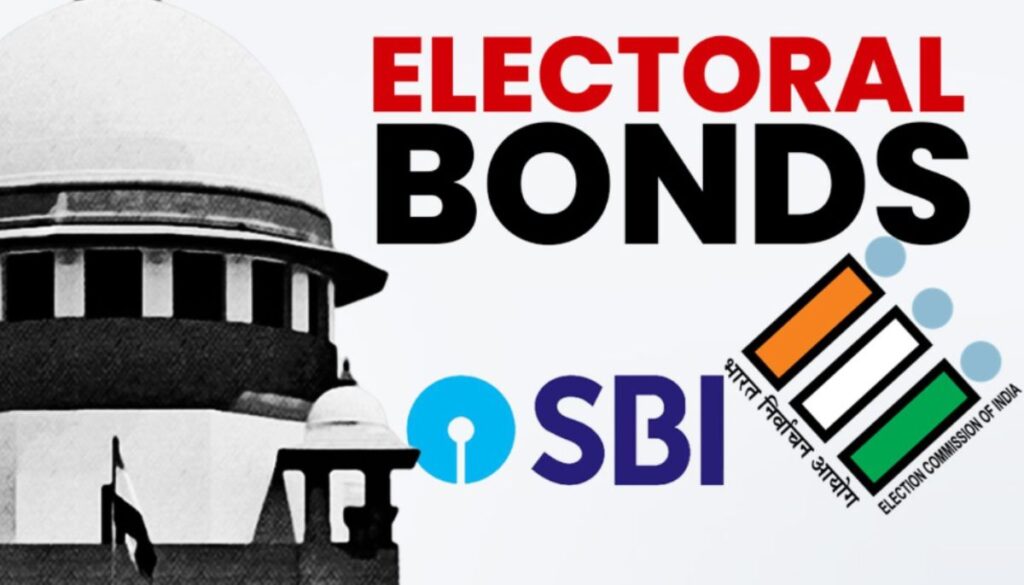The State Bank of India (SBI) has approached the Supreme Court seeking an extension of the deadline for disclosing details of electoral bonds encashed by political parties. The apex court had earlier directed the bank to furnish this information, raising transparency concerns about the anonymous political funding scheme.

The State Bank of India has petitioned the Supreme Court to extend the deadline for revealing information about electoral bonds that political parties have cashed to June 30.
SBI requests extra time from the Supreme Court to release information about electoral bonds.
The largest lender in the nation, State Bank of India, claimed in an appeal submitted to the Supreme Court that it would take a lot of time to retrieve information from “each silo” and compare it to other silos.
SBI argued in its appeal that it had implemented strict protocols to safeguard the identities of political party donors. The bank informed the court that deciphering the electoral bonds and linking donors with donations would probably be a difficult task.
The bank said. “It submitted that the data related to the issuance of the bond and the data related to the redemption of the bond was kept recorded in two different silos. No central database was maintained. This was done to ensure that donors’ anonymity would be protected,”
The bank told the court that donors’ details were kept sealed at some branches. They were later deposited in the main branch of the applicant bank, located in Mumbai.
“It is submitted that donor details were kept in a sealed cover at the designated branches and all such sealed covers were deposited in the Main Branch of the Applicant bank, which is located in Mumbai,” the bank said.
The Supreme Court struck down the electoral bonds programmed for political financing on February 15, declaring that it breaches the Constitution’s guarantees of the right to information and freedom of speech and expression. This decision dealt a severe blow to the government. The top court directed SBI to provide the identities of the contributors to the six-year-old plan to the Election Commission in its ruling, which was rendered months before the Lok Sabha elections.
A five-judge Constitution bench headed by Chief Justice D Y Chandrachud directed that the SBI must disclose details of each electoral bond encashed by political parties. The information should include the date of encashment and the denomination of the bonds and be submitted to the poll panel by March 6.
With inputs from PTI
Also Read: – PAYTM FASTAG EXODUS: HOW TO PORT YOUR ACCOUNT TO ANOTHER BANK (STEP-BY-STEP GUIDE)
FAQs:
1. What are electoral bonds?
Electoral bonds are a method for anonymous political donations introduced in India in 2018. Donors purchase bearer bonds from designated banks like SBI, and political parties can encash them without disclosing the donor’s identity.
2. Why did the Supreme Court ask for details?
The Supreme Court, in a February 2023 ruling, raised concerns about the lack of transparency in electoral bond funding. They directed SBI to disclose details like the value of bonds encashed by each party and the date of encashment.
3. Why is SBI seeking an extension?
SBI cites operational difficulties in gathering and compiling the requested data within the given timeframe. They have requested an extension till June 30, 2024.
4. What are the potential implications?
Granting the extension could delay public access to information about political party funding. Conversely, denying the request might raise concerns about the ease of implementation of the court’s order.
5. What is the ongoing debate?
The use of electoral bonds has sparked debate in India, with some arguing they promote anonymity and reduce the influence of money power in politics, while others raise concerns about lack of transparency and potential for misuse.










